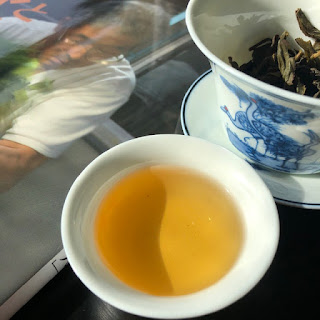Sakura is a feast for the eyes.
Also a feast for the palate.
Sencha named "sakura-hime (lit: sakura princess), which is blended with natural sakura leaves. It has a scent of sakura, giving me a feel of spring. Perfect with "sakura-mochi" sweets, which is wrapped in a sakura leaf.




















